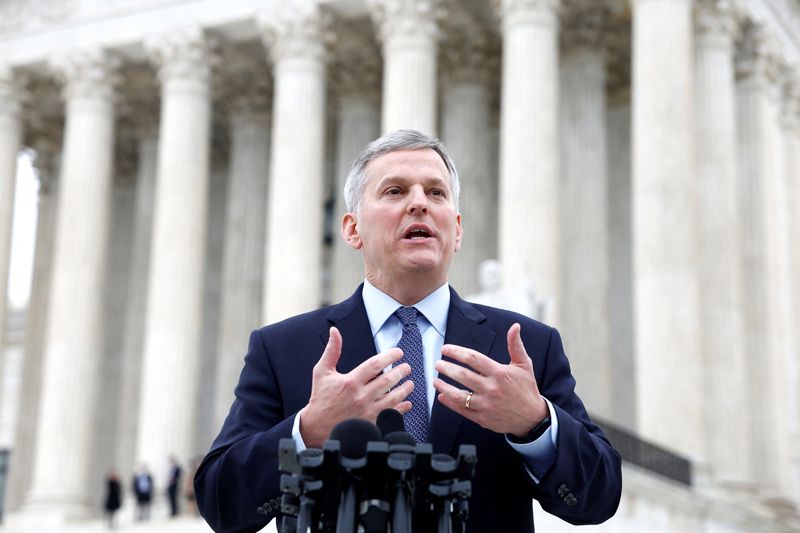(Reuters) - A federal appeals court ruled on Wednesday that a decades-old North Carolina law making it a crime to publish false derogatory statements about a candidate in an election was likely to be unconstitutional.
The law, which dates to 1931, was challenged by Josh Stein, now the state's attorney general, who in 2020 was accused of making derogatory statements in a campaign advertisement about Jim O'Neill, then Stein's rival candidate for the office.
The state's Board of Elections spent eight months investigating the complaint before recommending no charges be filed, reasoning that it was not clear if the ad included a demonstrably false statement and that, even if it did, applying the ban here might be unconstitutional.
A local district attorney disagreed, and in 2022, a prosecutor told Stein's campaign office that a grand jury was being convened to bring charges against Stein.
Stein sued the district attorney in a federal district court, which denied his request for a preliminary injunction to stop the grand jury proceedings.
On Wednesday, a three-judge panel in the U.S. Court of Appeals for Fourth Circuit granted the preliminary injunction, and ordered the district court to continue the proceedings consistent with the opinion issued on Wednesday.
The law in question makes it a misdemeanor to publish or circulate a derogatory statement about a candidate for office while knowing it to be false, or "in reckless disregard of its truth or falsity."

The panel was unanimous in finding the law likely violated the free speech protections of the U.S. Constitution's First Amendment in two ways. Firstly, by appearing to criminalize at least some truthful statements; and secondly, the law entails "content-based distinctions" by banning only campaign-related speech, which the First Amendment forbids.
"Under this statute, speakers may lie with impunity about businesspeople, celebrities, purely private citizens, or even government officials so long as the victim is not currently a 'candidate in any primary or election,'" Judge Toby Heytens wrote. "That is textbook content discrimination."
